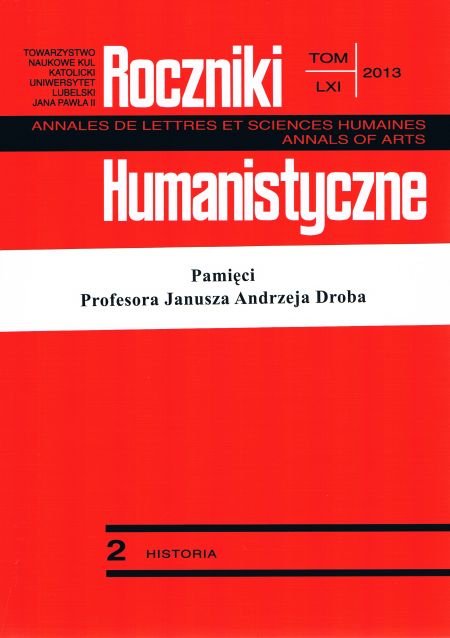Wpływ przemian ustrojowych na rozwój hiszpańskiej kultury po roku 1975
The impact of the political transformations on the development of Spanish culture after 1975
Author(s): Jacek GołębiowskiSubject(s): History
Published by: Towarzystwo Naukowe KUL & Katolicki Uniwersytet Lubelski Jana Pawła II
Keywords: Spain in the 20th century; autonomous communities; culture of modern Spain
Summary/Abstract: The political transformations in Spain that ended with free parliamentary elections of 15 June 1977 were a powerful catalyst of the activity of the Spanish nation in all walks of life. Between 1975 and 1990 a real revolution took place in Spanish mass media and in culture. It resulted in setting up modern periodicals (among others, „El Paiz”, „El Mundo”, „Navarra Hoy”, „Diaro Rioja” and many others), over 2600 radio stations and a network of modern television channels broadcasting programs devoted to culture and to languages of the autonomous communities. The Ministry of Culture established in 1977 supported initiatives promoting multiculturalism of the Kingdom of Spain, which resulted in opening several dozen modern museums, institutes of modern art and organizing numerous festivals. Decentralization of the country made it possible to emphasize the multiculturalism of Spanish autonomous communities that today act as a magnet for a 70 million mass of tourists from all over the world.
Journal: Roczniki Humanistyczne
- Issue Year: 61/2013
- Issue No: 02
- Page Range: 315-323
- Page Count: 9
- Language: Polish

